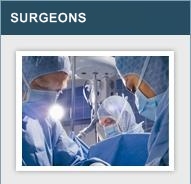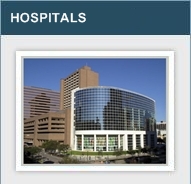What is it?
A fissure is simply a crack or split in a sensitive part of the skin of the back passage. It is made worse by tightening or spasm of the ring muscle that holds the back passage shut. The fissure causes pain and often some bleeding.
The Operation
You will have a general anaesthetic, and will be asleep for the whole operation. The ring muscle is cut. This allows the fissure to heal - a process which takes a week or so. You should be able to leave hospital after 3 or 4 hours.
Any Alternatives
 Simple ointments and creams have not been helpful for you. Your fissure will not go away if you just wait and see. Stretching the muscle is an alternative to cutting it, but there is less control of the wind and motions after stretching.
Simple ointments and creams have not been helpful for you. Your fissure will not go away if you just wait and see. Stretching the muscle is an alternative to cutting it, but there is less control of the wind and motions after stretching.
Cutting out the fissure is rarely helpful. Sometimes the area can be numbed with an injection, avoiding a general anaesthetic
Before the operation
Stop smoking and get your weight down if you are overweight. (See Healthy Living). If you know that you have problems with your blood pressure, your heart, or your lungs, ask your family doctor to check that these are under control. Check the hospital's advice about taking the pill or hormone replacement therapy (HRT). Check you have a relative or friend who can come with you to hospital and take you home. Bring all your tablets and medicines with you to hospital.
On the ward, you may be checked for past illnesses and may have special tests, ready for the operation. Many hospitals now run special preadmission clinics, where you visit for an hour or two, a few weeks or so before the operation for these checks.
After - In Hospital
There is some discomfort on moving rather than severe pain. You will be given injections or tablets to control this as required. Ask for more if the pain is still unpleasant. A general anaesthetic will make you slow, clumsy and forgetful for about 24 hours. Do not make important decisions, drive a car, or even boil a kettle in that time. The discomfort of the operation can make it difficult to pass urine and empty the bladder. It is important that your bladder does not seize up completely. If you cannot get the urine flowing properly after 6 hours, contact the nurses or your doctor.
You may have some of your old discomfort on opening the bowels at first, but this should improve in a week or so. There may be some difficulty controlling the wind from the back passage for a day or two, but this improves rapidly. You can bathe or shower as often as you want, using soap and tap water. Salted water is not necessary. Some hospitals arrange a check up about one month after you leave hospital. Others leave check-ups to the General Practitioner. The nurses will advise about sick notes, certificates etc.
After - At Home
You may feel sore in the back passage for a week or more. This gradually improves so that by the end of a month you are well. There may be some difficulty controlling the wind or even the motion for a week or so but this gets better rapidly. You can drive as soon as you can make an emergency stop without discomfort in the wound i.e. after about 3 days. You can restart sexual relations within a week or two, when the wound is comfortable enough. You should be able to return to work within a day or so.
Possible Complications
Complications are rare and seldom serious. If you think that all is not well, ask the nurses or doctors. There may be some bruising which settles down in a week or so. Infection is a rare problem and settles down with antibiotics in a week or two. You may need a further examination of the bowel once the fissure has healed, and the back passage is comfortable.





